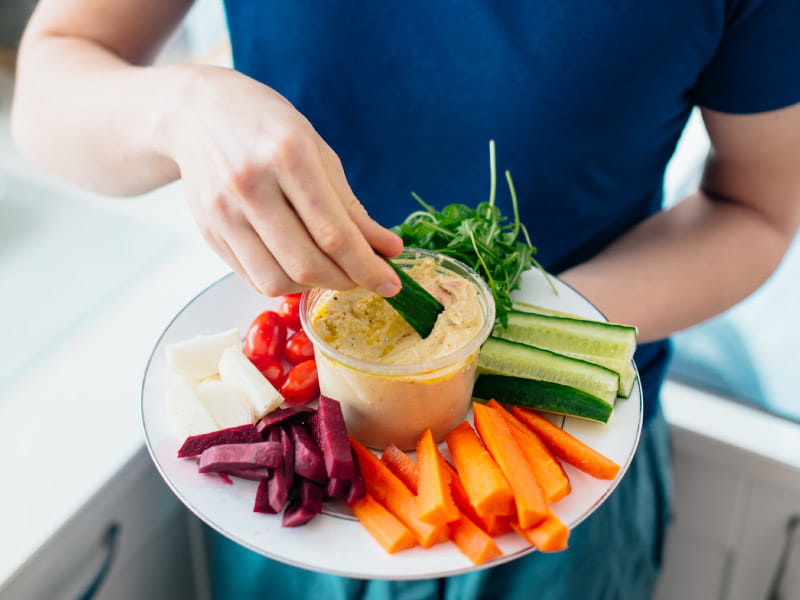Make better snack choices with these healthy tips
By American Heart Association News

Anybody in the mood for a snack?
The answer is almost certainly yes. An estimated 95% of U.S. adults reported consuming a snack on any given day, according to pre-pandemic survey data from the Department of Agriculture. And snacks contributed more than a fifth of the calories that adults eat.
So if healthy eating is your goal, minding those snacks is essential. Here's advice from experts on how to make good choices and dodge common traps.
Remember the basics
Look for snacks that are lower in sugar and salt. Tasty options include fruits and vegetables, nuts and low-fat yogurt. All can help tide you over until the next meal.
Find snacks that satisfy
Dietitians recommend trying to pair a complex carbohydrate with a lean protein and healthy fat – and don't forget the fiber. Consider whole-grain toast with peanut or almond butter; whole-grain crackers with canned tuna or salmon; or cherry tomatoes with hummus.
Read those labels
As food companies work to provide healthier snacks, consumers need to look beyond terms like "healthy" or "natural" on the label. That "healthy" nutrition bar might have more calories than a candy bar. Also check for added sugars and high levels of sodium.
Watch the beverages
Drinks count as you keep track of between-meal calories. Many people are aware of the calories in soda but might overlook what's in juice or their coffee drink. Consider options such as plain or sparkling water, unsweetened tea or coffee, or a small glass of 100% fruit juice.
Beware the break room
A 2019 study in the Journal of the Academy of Nutrition and Dietetics indicated that people commonly consumed food provided by vending machines, company cafeterias and friendly employers or colleagues – and that added an average of 1,300 calories to workers' weekly totals. So if you work outside the home, consider taking your own healthy snacks with you.
Set yourself up to succeed
If you have a weakness for cookies, don't buy them. If you tend to crave sugary snacks at work, don't keep a jar of candy at your desk.
Snacking can mean different things to different people, so you'll need to adapt to what works for you. The goal, experts say, is to snack consciously, instead of eating mindlessly.
If you have questions or comments about this American Heart Association News story, please email [email protected].





